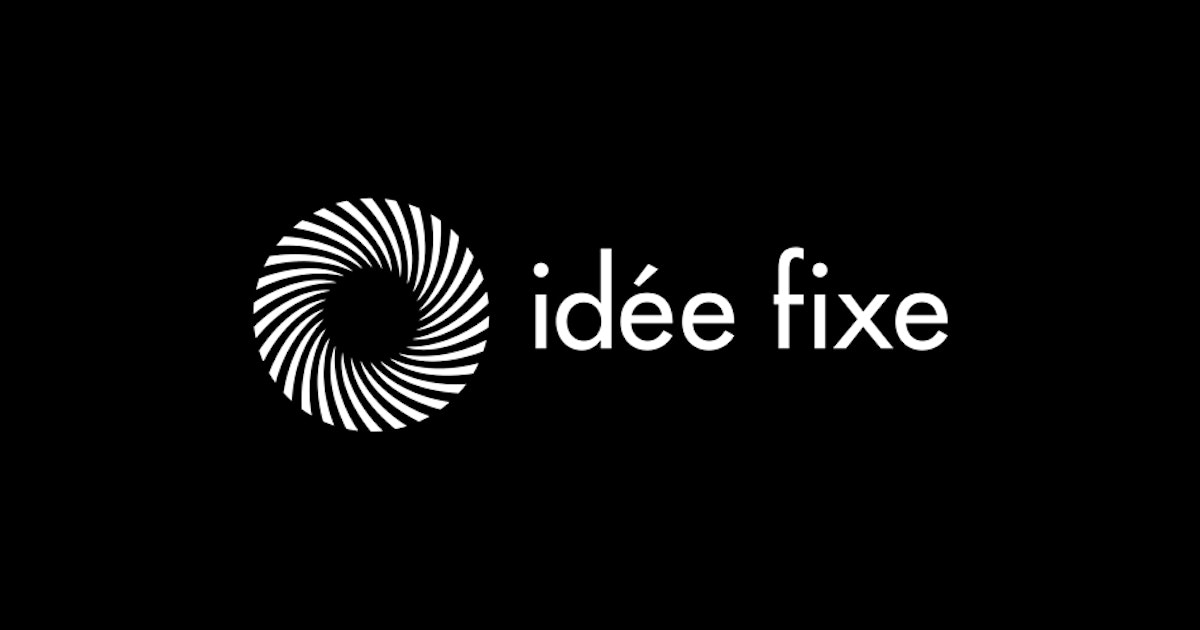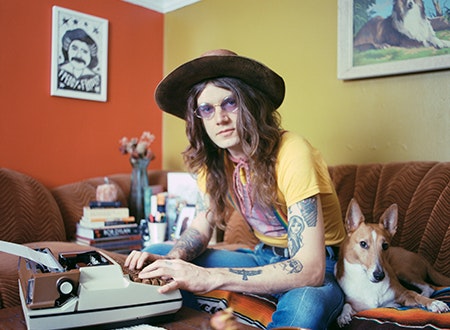Label Feature #12: Idée Fixe Records
By Simon Daley

Celebrating their 10th anniversary in 2021, Toronto-based label Idée Fixe Records has become an indie powerhouse. With their releases garnering worldwide acclaim and the global vinyl boom in full effect, the future looks brighter than ever!
What do you get when an entrepreneurial packaging specialist meets an accomplished record producer? This isn’t the beginning of a very niche joke, but in-fact the foundations for one of Toronto’s brightest musical exports – Idée Fixe Records. Old friends Alex Durlak and Jeff McMurrich joined forces in 2011, each bringing their unique set of skills to the new venture. Both well-established names in the local scene, Durlak contributed prior experience running a label and an almost obsessive eye for design and packaging, while McMurrich – a decorated record producer and studio owner, delivered world-class recordings that have earned the label multiple Polaris Prize nominations. We caught up with the duo in June 2021 to discover more about the philosophy of the label as well as seek advice for those looking to launch a new label in a challenging time for the industry.
Congratulations on celebrating the 10th anniversary of the label. When you started this journey you were also involved in several other music industry businesses, what was the motivating factor behind launching a new record label?
AD: Thanks! It’s been a trip! Well, Jeff and I had been friends for many years prior to us starting Idée Fixe. He was running his own studio and working as a freelance engineer and producer and I had my printing business called Standard Form that, at the time, specialized in music packaging, but I had also put out about a dozen or so albums under that name. Coming from backgrounds that could be loosely described as punk rock and DIY, we recognized that between the two of us we had the means of production: he recorded albums, I printed albums. We had a large music community of friends and peers that we felt were underrepresented and we decided to join together to pick up the slack.
JM: What Alex said. It’s an age-old model to have a music producer and art director run a label (think Blue Note) and, frankly, I would get disappointed with how hard I worked to produce records and then watch labels not market them properly/find the correct audience. It was always my dream to have a record label. I’m old, so during my childhood (very pre-internet) playing 45’s all afternoon was my thing. I organized them in different ways including according to label, as during that time most 45 sleeves were heavily branded, so often the label and its logo were more prominent than the artist in terms of what you experienced visually. I have a very vivid memory of seeing my first Apple Records 45 when I was around 5 or 6 and internalized it as the most beautiful/valuable thing I had ever seen. To me that label is still the pinnacle of how design can elevate music.


2011 was an interesting year for the music industry, with a global downturn in physical music sales and most streaming services still in their infancy. Did it feel like a challenging environment at the time?
AD: We always knew we were starting in a time of great flux. I think even then we were kicking ourselves for not having started sooner. From Standard Form‘s perspective, I was printing a lot of custom CD jackets for the local independent music scene and I was keenly aware that CDs were slowly evaporating. Spotify wasn’t even in Canada then, but we always knew streaming was coming. We were adapting and tweaking and experimenting from the beginning and that’s never really stopped. Vinyl was always there, but it felt very niche, very much for the deep music heads.
JM: Out of the gate we were pressing records and that was at the core of our philosophy, which was uncommon at the time due to expense and a lack of outlets to sell vinyl. In the 10 plus years we have learned a lot. Not relying on streaming is one of them and having conviction in the quality of music you release and how it is packaged is the most important aspect of the type of label we want to be. We are working outside of the music industry whose corporate construct holds zero appeal.
IFR has released music by an eclectic assortment of artists and bands, how would you describe the A&R philosophy of the label?
AD: Our philosophy’s simplicity belies its complexity: we both have to really like it. We put so much work into the label that we can only emotionally justify the labour if it’s for music we genuinely love. So, what do we like? It’s a real struggle to define that, we love so many kinds of music, the closest I’ve been able to narrow it down to is excellence in song-writing. That’s the one thread: our artists write really fucking good songs. Instrumentation, genre, etc – none of that really matters beyond is it a good song?
In addition, with the hindsight of 10 years, there’s also an unspoken relationship with a sense of community. Looking back, every project we’ve taken on has been connected to another one on the label in some way. Each project opens the door to another set of potential projects. Even artists that we think are brand new to us inevitably have a connection that was waiting to reveal itself. My original dream for our 10 year anniversary was just to host a big meal with everyone on the label, in part because I just loved the idea of having all of these people talking to each other, no one would be a true outsider. The laughs would be epic. But the pandemic fucked that up like everything else. Sigh.
JM: I think at first there was a continuity, in that the first bunch of albums were records I produced, so even though they were all different it went through a filter that connected the work. But Alex and I have broad tastes and we know that people who are really invested in music and art understand the many forms those disciplines can take. I really like emotional music and I love lyrics that make me cry/think/feel alive. I love Jazz because it can also be so expressive emotionally. Also love advanced studio sonics. Love it all when it’s done at the highest level.
Over the years label owners have often told us about the different and sometimes obscure aspects of running a record label that they love. What’s the factor that keeps you coming back for more?
AD: The joy of watching an artist crack their vinyl record open for the first time. Their eyes as they hold this big, flat square in their hands. Their smile as they slide out the disc and their name is on the centre label. It’s like doctors that retire but still stick around to deliver babies because it’s the fucking best. That’ll be me.
JM: That first week or so that I am falling in love with a record that has been submitted to the label. That’s the test. If I can’t stop playing it I just know I can’t wait to help tell the world about it.


What’s one piece of advice that you would give to someone wanting to start a new label in 2021?
AD: Don’t! It’s insane, you’ll never sleep well again, don’t do it! Ha, kidding! Can I do three?
- Participate. Go to shows. Start your own band. Put on shows. Talk to people. Help carry gear in from the van. Read and comment on message boards. Send DM’s telling people they’re dope. Don’t expect anyone is going to care if you don’t talk to anyone. Your friends are your greatest resource.
- Don’t listen to any advice where someone tells you “this is the right way to X” or “this is the proper way the industry does X”. There are no rules. There are best practices, sure, but no rules. Do what feels right, be genuine.
- Book-keeping. Do it every week, every month. Train to be a spreadsheet ninja. Never let that slip, ever. It sucks, it’s boring, I get it, but going back and trying to figure everything out later is exponentially worse.
JM: Know who your audience is and find a way to reach that audience. There are a ton of models out there. Find the one that works for you. Take inspiration from other labels like musicians do from other bands. I am still referencing single sleeves I saw as a 5yr old. It’s a deep world unto itself with a deep history. Know what you are getting into.
For more information about the label and releases visit ideefixerecords.com.